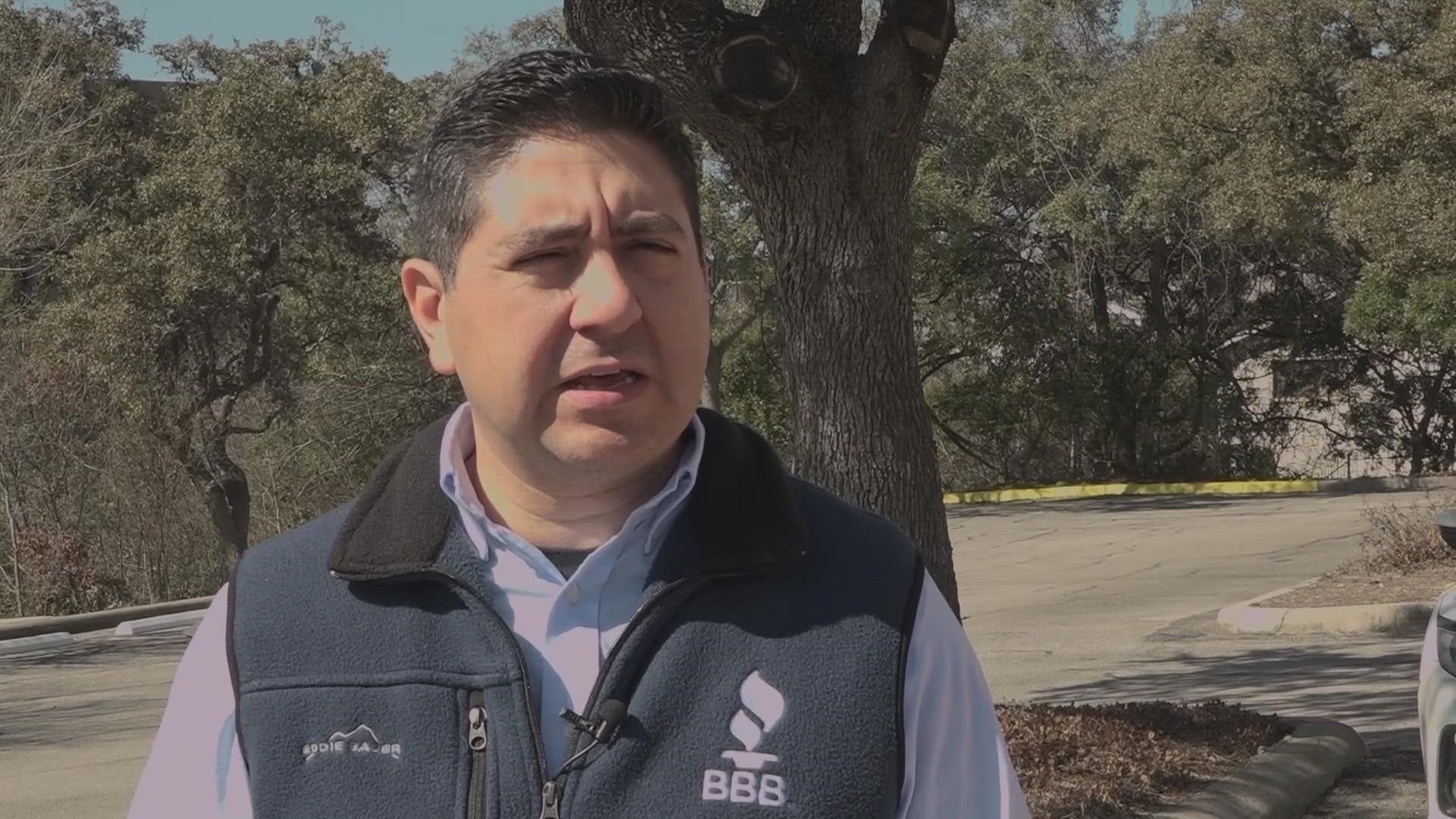SAN ANTONIO — Many of us are anxious to get repairs made, but beware of an unsolicited contractor that knocks on your door offering to do repairs. Before you hire anyone, double-check a few qualifications first.
If you answer the door, make sure the contractor asking for work can answer some questions. Verify the contractor is licensed, bonded, and insured. It means they meet the requirements to be able to do business in the state.
“You can use any kind of repair person that you choose,” said Richard Johnson of the Insurance Council of Texas. “Make sure that you’re using someone who’s reputable.”
Then check the three R’s: Reviews, referrals, and reputation.
“Double check they are who they say they are,” said Jason Meza, the regional manager of the Greater San Antonio Better Business Bureau.
The Better Business Bureau (BBB) is a great place to see ratings and reviews.
Next, check where they are located. Out-of-town contractors can be more difficult to reach.
“Locally means you can walk up to a door, you can make a phone call and you can talk directly to somebody who lives here,” Meza said.
Never pay in full, upfront. Instead, follow the rule of thirds.
“Meaning a third of the payment for a deposit, a third when they show up for materials and to work and then a third once completion is satisfied," Meza said. "I think that’s the best rule of thumb, work in thirds for deposits. Never pay cash.”
“Do it in stages,” Johnson said. “Maybe a little bit to get the job started, a little bit when they are halfway through, and then when they finish.”
Plus, get the price and timeline in writing. Contracts should never have any blanks when you sign them.
“You’ll need that in case you need to dispute something,” Meza said. “If you have a full contract that’s signed, you can refer back to it.”
It can be tempting to take the first offer so work can begin quickly, but get three estimates. It will help you not only get a good price but also the feel of a business’ communication and customer service practices.
Also, know what separates a good contractor from a great one.
“A great contractor will go above and beyond with everything from permits to being upfront with you about what’s going on with your project,” Meza said.
Trying to find a good contractor can be tricky. You can also ask your insurance company to provide of list of businesses it works with.

